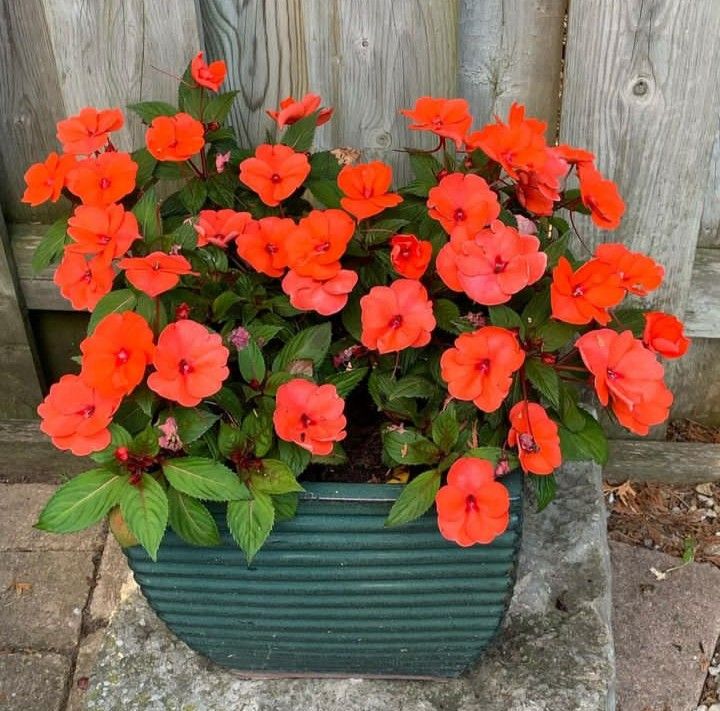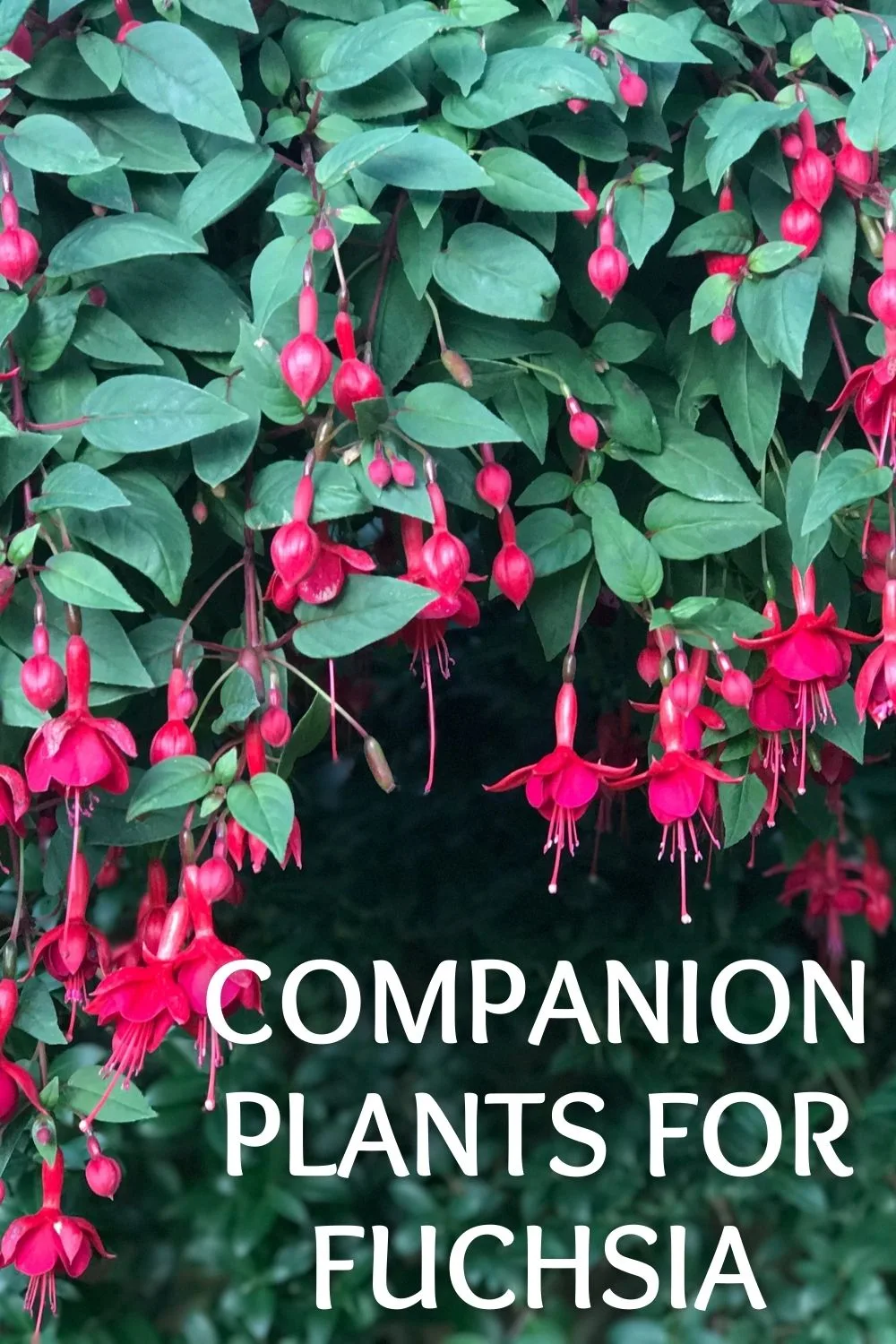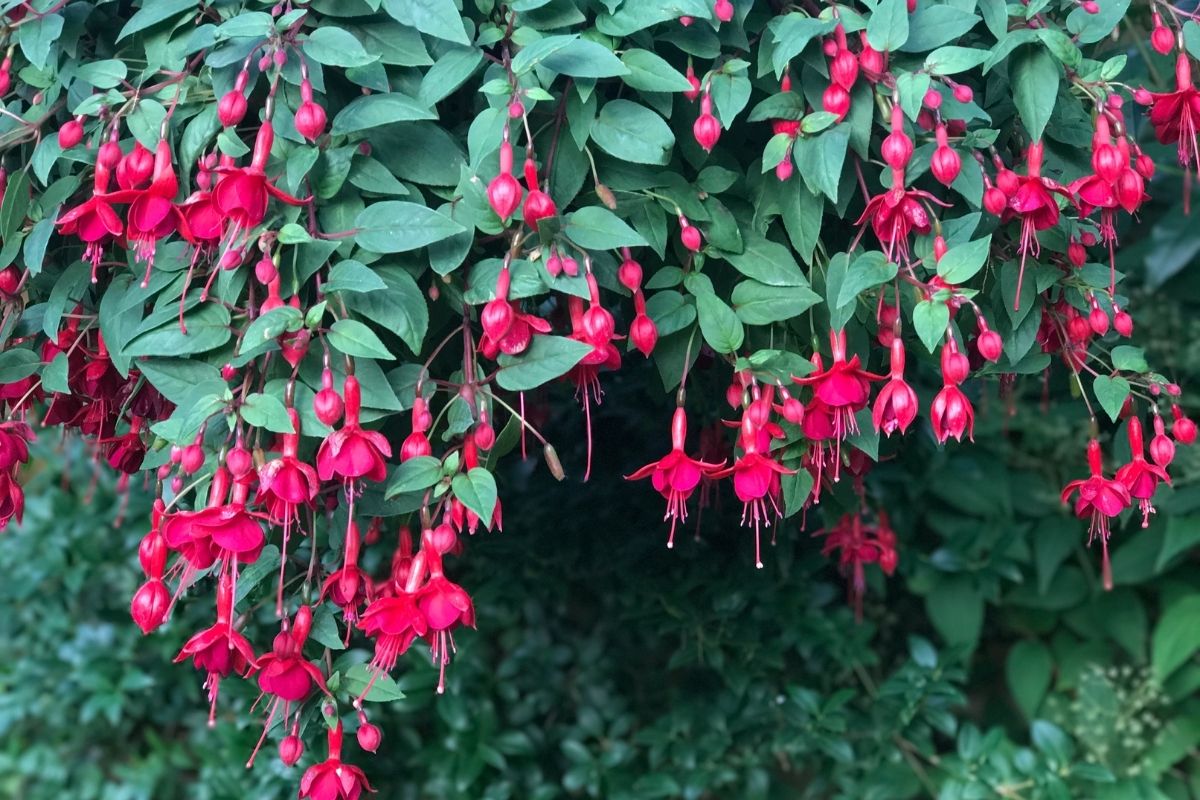The Best Fuchsia Companion Plants To
The Best Fuchsia Companion Plants
Fuchsias are beautiful and versatile plants that can add a touch of color and interest to any garden. They come in a wide variety of shapes, sizes, and colors, and can be grown in sun or shade. However, no matter where you plant them, fuchsias will look their best when they are surrounded by complementary companion plants.
In this blog post, we will discuss some of the best companion plants for fuchsias. We will consider factors such as plant height, sun exposure, water needs, and bloom time to help you choose the perfect plants for your garden.
Choosing Companion Plants for Fuchsias
When choosing companion plants for fuchsias, there are a few things you need to keep in mind. First, consider the height of the plants. Fuchsias can range in height from a few inches to several feet, so you need to choose plants that will complement their size. For example, if you have tall fuchsias, you might want to plant shorter companion plants in front of them to create a layered effect.
Second, think about the sun exposure needs of the plants. Fuchsias can tolerate a range of light conditions, but they will do best in partial shade. If you live in a hot climate, you may want to plant your fuchsias in full shade. However, if you live in a cooler climate, you may be able to get away with planting them in full sun.
Third, consider the water needs of the plants. Fuchsias need moist soil, but they do not like to sit in water. If you have poor drainage, you may need to plant your fuchsias in raised beds or containers.
Finally, think about the bloom time of the plants. Fuchsias bloom in the spring and summer, so you want to choose companion plants that will bloom at the same time. This will help to extend the flowering season in your garden.
Some of the Best Companion Plants for Fuchsias
Here are some of the best companion plants for fuchsias:
- Begonias: Begonias come in a wide variety of shapes, sizes, and colors, so you can find the perfect ones to complement your fuchsias. They also have similar light and water requirements, making them a good choice for companion planting.
- Impatiens: Impatiens are another good choice for companion planting with fuchsias. They come in a variety of colors and are easy to care for. Impatiens also prefer partial shade, just like fuchsias.

- Coleus: Coleus is a colorful plant that can add a pop of interest to any garden. It is also easy to care for and can tolerate a range of light conditions. Coleus is a good choice for companion planting with fuchsias in containers or hanging baskets.

- Hostas: Hostas are shade-loving plants that have large, textured leaves. They provide a nice contrast to the delicate foliage of fuchsias. Hostas are also relatively low-maintenance, making them a good choice for busy gardeners.

- Lobelia: Lobelia is a small, blue or purple flower that is often used as a filler plant. It is a good choice for companion planting with fuchsias because it has similar light and water requirements. Lobelia also blooms for a long period of time, which helps to extend the flowering season in your garden.
- Petunias: Petunias are another popular choice for companion planting with fuchsias. They come in a wide variety of colors and are easy to care for. Petunias also prefer full sun, just like fuchsias.

- Nemesia: Nemesia is a colorful flower that is native to South Africa. It is a good choice for companion planting with fuchsias because it has similar light and water requirements. Nemesia also blooms for a long period of time, which helps to extend the flowering season in your garden.

- Angelonia: Angelonia is a small, white or purple flower that is often used as a filler plant. It is a good choice for companion planting with fuchsias because it has similar light and water requirements. Angelonia also blooms for a long period of time, which helps to extend the flowering season in your garden.

Conclusion
Fuchsias are beautiful and versatile plants that can add a touch of color and interest to any garden. By choosing the right companion plants, you can create a stunning and harmonious display that will bloom for months to come.
Fuchsias are beautiful flowering plants that can add a touch of color to any garden. But did you know that the right companion plants can help your fuchsias thrive?
There are a number of different plants that can make good companions for fuchsias. Some popular options include:
- Hostas: These shade-loving plants have large, textured leaves that provide an interesting contrast to the delicate foliage of fuchsias.
- Coral bells: These perennials have colorful foliage that blooms in shades of pink, red, and orange. They prefer partial shade and moist soil, making them a good match for fuchsias.
- Rhododendrons: These shrubs are known for their beautiful blooms in shades of pink, purple, and white. They prefer acidic soil and partial shade, which makes them a good choice for fuchsias that are grown in containers.
- Begonias: These plants come in a variety of shapes and sizes, and they can be grown in sun or shade. They are relatively easy to care for, and they make good companions for fuchsias because they have similar water and fertilizer requirements.
- Petunias: These annuals are known for their bright, colorful blooms. They prefer full sun and well-drained soil, making them a good choice for fuchsias that are grown in containers.
If you are looking for more information about fuchsia companion plants, I recommend visiting Garden Wiki. This website has a wealth of information on a variety of gardening topics, including fuchsias. You can find a list of recommended companion plants for fuchsias, as well as tips on how to plant and care for these beautiful plants.
FAQ of fuchsia companion plants
Q: What are some good companion plants for fuchsias?
A: Fuchsias are shade-loving plants, so it's important to choose companion plants that have similar light and water requirements. Some good options include:
- Hostas
- Coral bells
- Hellebores
- Begonias
- Petunias
- Geraniums
- Rhododendrons
These plants will all thrive in the same conditions as fuchsias, and they will help to create a beautiful and colorful display in your garden.
Q: What colors pair well with fuchsias?
A: Fuchsias come in a wide range of colors, so you have a lot of flexibility when it comes to choosing companion plants. However, some colors that pair well with fuchsias include:
- Lime green
- Mint
- Tangerine
- Yellow
- Black
- White
These colors will complement the fuchsias' vibrant hues and create a visually appealing arrangement.
Q: What are some of the benefits of planting companion plants with fuchsias?
A: There are several benefits to planting companion plants with fuchsias. For example, companion plants can:
- Help to deter pests and diseases
- Improve the drainage and aeration of the soil
- Provide shade and shelter from the wind
- Attract pollinators, such as hummingbirds and butterflies
- Add visual interest to your garden
Q: How close together should fuchsias and their companion plants be planted?
A: The best way to determine how close together fuchsias and their companion plants should be planted is to consult the specific recommendations for each plant. However, in general, you should allow for at least 12-18 inches of space between each plant. This will give them enough room to grow and spread without crowding each other out.
Q: What are some tips for caring for fuchsias and their companion plants?
A: Fuchsias and their companion plants require regular watering, especially during hot, dry weather. You should also fertilize them every few weeks with a balanced fertilizer. In addition, it's important to deadhead spent flowers to encourage new blooms.
By following these tips, you can help to ensure that your fuchsias and their companion plants thrive for many years to come.
Image of fuchsia companion plants
5 different images of fuchsia companion plants from Pinterest:
- Hosta: Hostas are shade-loving perennials that come in a variety of colors, including green, blue, and yellow. They make good companion plants for fuchsias because they have similar growing requirements and can help to suppress weeds.

- Coral bells: Coral bells are another shade-loving perennial that comes in a variety of colors, including pink, red, and white. They are similar to hostas in that they can help to suppress weeds and provide ground cover for fuchsias.

- Hellebore: Hellebores are winter-blooming perennials that come in a variety of colors, including white, pink, and purple. They are a good choice for companion plants for fuchsias because they can help to extend the flowering season.

- Begonia: Begonias are shade-loving annuals or perennials that come in a variety of colors, including red, pink, and white. They are a good choice for companion plants for fuchsias because they have similar growing requirements and can help to add color and interest to the garden.

- Petunia: Petunias are annuals that come in a variety of colors, including red, pink, and white. They are a good choice for companion plants for fuchsias because they are easy to care for and can help to add color and interest to the garden.

Post a Comment for "The Best Fuchsia Companion Plants To"